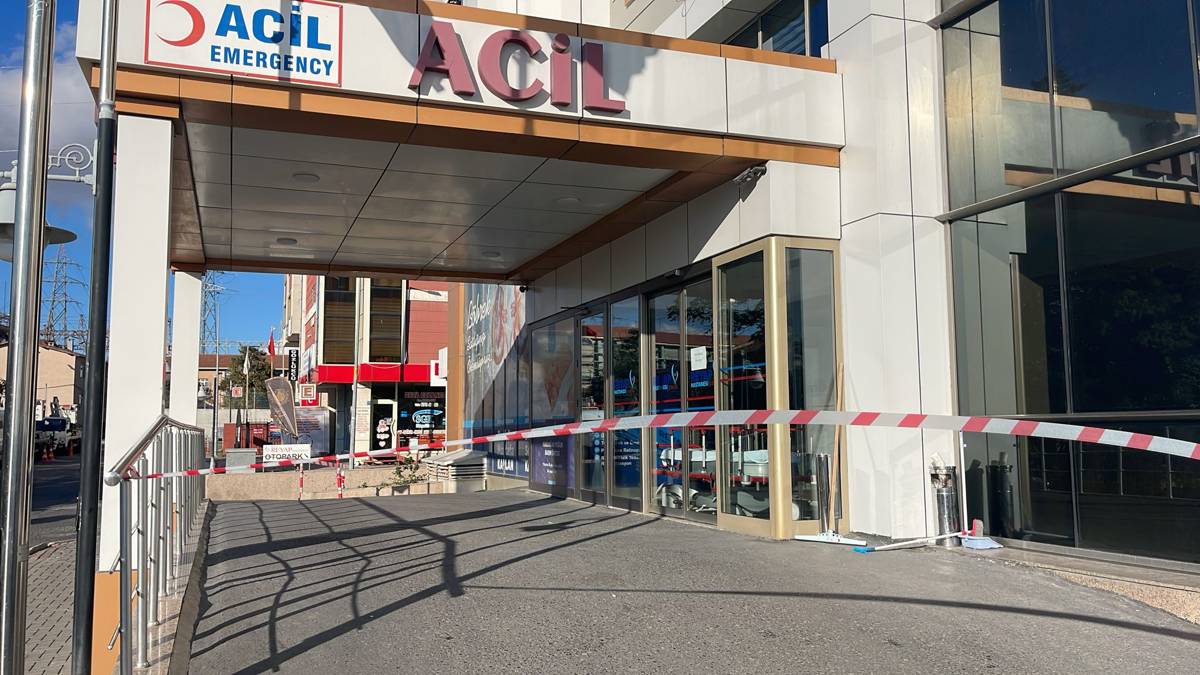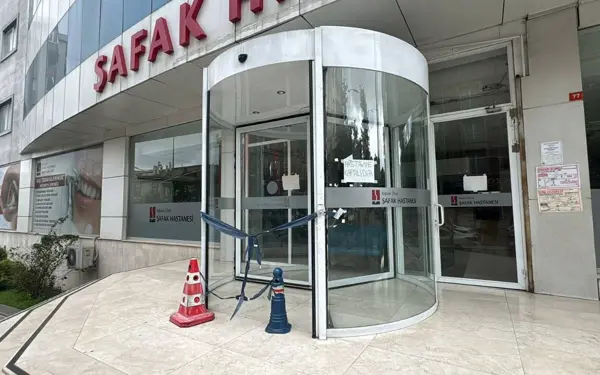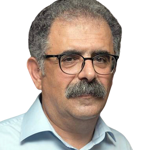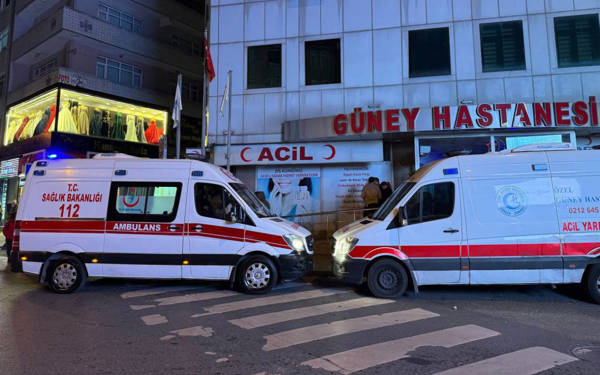The 'Newborn Gang' and gangs in the AKP era


In recent years, law enforcement has conducted frequent operations, capturing members of drug and organized crime rings, including international groups, with announcements often coming directly from the interior minister via social media—almost weekly. Yet, last week’s gang scandal, which emerged from İstanbul and involved healthcare, took a different turn. Instead of announcing it, the health minister initially tried to downplay it. However, public pressure mounted, forcing him to take action. At the same time, it was revealed that the Health Minister had known of the gang’s activities in healthcare since his days as İstanbul’s provincial health director.

Investigation exposes health sector financial crime scheme responsible for at least 12 infant deaths
The value of our newborns
For the past twenty or thirty years, we have been forced to witness increasingly frequent events that shame our humanity—cases like the "newborn gang," and we know all too well that it won’t be the last. Yet, it is encouraging that in Turkey, sensitivity towards children and babies is still largely protected by the public. Despite all the darkness, the enduring humanity in these lands reminds us that "humanity is not yet lost." And that realization is a comfort.
About14 years ago, scientific research revealed the presence of airborne heavy metals in the first breast milk of mothers and the first stool of newborns in Dilovası. When this data was shared with the public, it sparked a strong reaction, particularly toward the industries long known to poison their workers and pollute the air in Dilovası and nearby regions of Kocaeli and neighboring cities. This response forced local officials—who had long turned a blind eye and even seemed to encourage such practices—to take action, if only temporarily. They were compelled to implement existing legal precautions and sanctions.
Reports of abuses in adult intensive care units of private hospitals have been around for years, but last week’s revelations of crimes in neonatal intensive care units at some private hospitals in İstanbul stirred intense public outcry. This reaction pushed all responsible authorities into action, prompting judicial and administrative investigations. However, the "murdered infants" cannot be brought back, and the grief of the devastated families will not subside. Unless the root causes of these issues are radically addressed, we cannot prevent similar tragedies in the future.
World Bank influence and the award given to AKP
After the AKP government came to power and Recep Tayyip Erdoğan assumed the role of Prime Minister, it promoted the idea of "eliminating inequalities" by consolidating various social security institutions under a single umbrella. True to this pledge, in 2006, Law No. 5502 led to the establishment of the Social Security Institution (SGK) by merging the Social Insurance Institution (SSK), the Social Security Institution for Tradesmen and Craftsmen (Bağ-Kur), and the Pension Fund (ES). With this merger, social security beneficiaries were categorized with letters instead of institutional names: SSK members became 4A, Bağ-Kur members 4B, and ES members 4C. However, far from reducing past inequalities, the reforms have actually exacerbated them. Bağ-Kur retirees receive significantly lower pensions than SSK or ES retirees, with the gap widening every year.
The primary rationale behind the "SGK will end inequalities" narrative was to establish a universal health insurance system, as seen in the World Bank's (WB) programs. The goal was for only those who regularly paid health insurance premiums (SSP) to access healthcare services and to separate healthcare providers (hospitals, laboratories, imaging centers, etc.) from healthcare financers. In September 2008, Law No. 5510 introduced a new health financing model, enabling the state to use collected SSPs to purchase health services for the insured from providers (state and/or private) of its choice.
This allowed the government to purchase healthcare services from private hospitals, putting them in a more financially secure and privileged position than public hospitals (Health Ministry and university hospitals). For instance, private hospitals receive payment on the day they submit their invoices to provincial SGK offices, while university hospitals’ invoices undergo months-long audits, with many payments reduced or rejected due to "errors." As SGK health statistics reveal, although per-patient payments to private hospitals are much higher than to public hospitals, SGK still relies heavily on private healthcare providers. In 2023, for example, SGK paid an average of 512 liras per insured patient to private hospitals, compared to just 189 liras to public hospitals for similar services—a disparity in favor of private hospitals by 2.8 times.
Since the 1980s, the WB’s "health reform" program has reshaped health systems in capitalist countries, with Turkey adopting it under the name "Health Transformation Program" in June 2003 during the AKP administration. The AKP officially launched the program in March 2004 by directly requesting a loan from the WB, through two letters signed by the Ministers of Labor and Social Security and Health. The program also received support from a TÜSİAD report published in September 2004. Subsequently, the WB sent in its university-trained officers, and AKP staff soon adapted the system, reshaping the healthcare sector not for public benefit, but to serve corporate interests. In recognition of these reforms, the WB awarded the AKP in 2010 for its role in implementing the system.
Reducing costs for private hospital owners
Healthcare services are both labor- and technology-intensive. The use of technology in healthcare doesn’t reduce the need for workers; in fact, it often increases it. Consequently, a significant portion of service costs is due to personnel expenses, primarily doctors' salaries. Over time, however, the AKP government addressed this issue on behalf of private hospitals. Doctors whose photos are displayed as “staff doctors” on private hospital websites are, in most cases, not employees of those hospitals. Nearly all are required to establish their own companies and contract their services to the hospitals. This means they earn only based on the services they perform and pay their own taxes, social security contributions, and other expenses. The hospital, meanwhile, bills SGK for these services as an intermediary provider, receiving reimbursement for each contracted doctor’s services. If a doctor becomes ill or takes a vacation, they receive no payment.
Moreover, as seen in the "newborn gang" case, the requirement for hospitals to employ specialist doctors in their service areas was removed, allowing for a "service procurement" system. This shift normalized the practice of doctors only visiting intensive care units or clinics at specific times of day, even if patients are in critical care.
In public hospitals, too, outsourced companies began to manage certain services, such as clinics and laboratories, selling these services to the hospital. Hospitals, in turn, could bill SGK for the services purchased from these companies, adding their own markup.
Private hospitals in Turkey
Until 1995, public social security institutions did not purchase services from private hospitals. However, between 1996 and 2005, as some public social security institutions began to purchase a limited range of services from private hospitals, the total revenue of private hospitals grew. Consequently, their numbers increased, and they expanded throughout the country.
For example, in 1996, there were only 159 private hospitals across 35 provinces, with 125 located in just 12 provinces, including 72 in İstanbul. In 45 provinces, accounting for only 17.2% of Turkey’s gross domestic income, there were no private hospitals at all. This was because private hospitals primarily served those able to pay out-of-pocket, as well as SSK and ES patients—mostly salaried employees, retirees, and their families—who received package services like angiography and dialysis through public social security contracts.
Once SGK began purchasing services from private hospitals, the number of private hospitals rapidly increased, reaching 300 within a few years, 450 in 2009, and 572 by 2022.
Healthcare enterprises: private hospitals
As of 2022, private hospitals make up 37% of the 1,555 hospitals in Turkey, yet they hold only 21% of the country’s total 262,190 hospital beds. However, private hospitals possess 36% of intensive care beds and 54% of neonatal intensive care beds. Despite representing a smaller share of overall hospital beds, their share of intensive care beds aligns closely with their overall number. Additionally, although private hospitals only account for 21% of all hospital beds in Turkey, they hold 54% of neonatal intensive care beds due to significantly higher SGK payments for these services.
A business is a business. Whether it’s a steel plant, cement factory, shoe factory, pasta plant, or hospital, for capital owners, any enterprise is fundamentally about profit. Owners focus on capital accumulation and profit margins. Spearheaded by the World Bank and implemented by the AKP, the Health Transformation Program has become a vehicle to channel SSP funds collected from citizens into the private sector, both directly through private hospitals and indirectly via public hospitals. Through these policies, the AKP has incentivized investment in neonatal intensive care while consciously and systematically eroding medical, administrative, and financial oversight.
In conclusion
The Newborn Gang is not only a symptom of the collapse of the Health Transformation Program but also evidence of how capitalist neoliberal policies under the AKP’s influence have degraded human values. Healthcare services should not be profit-driven but rather be produced solely for public welfare, well-being, and happiness. They should be accessible to all, free of charge, and publicly funded. Until that is achieved, all intensive care units, especially neonatal units, urgently need to be restructured so that all staff are employed as specialists with permanent positions, and all medical, administrative, and financial oversight is conducted transparently.
As always, healthcare workers must purify their ranks of wrongdoers and those who commit harm through organized mechanisms. Achieving this requires both healthcare workers and society to free themselves from the Health Transformation Programand the AKP-MHP administration. (OH/VK)








